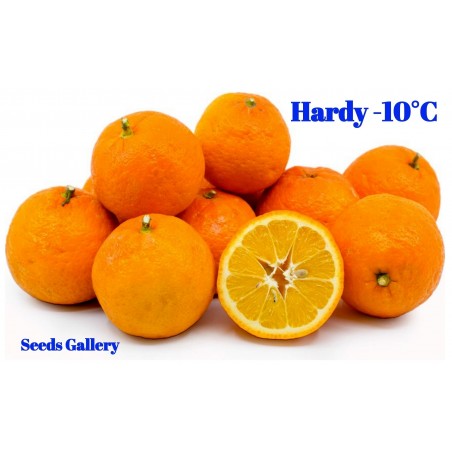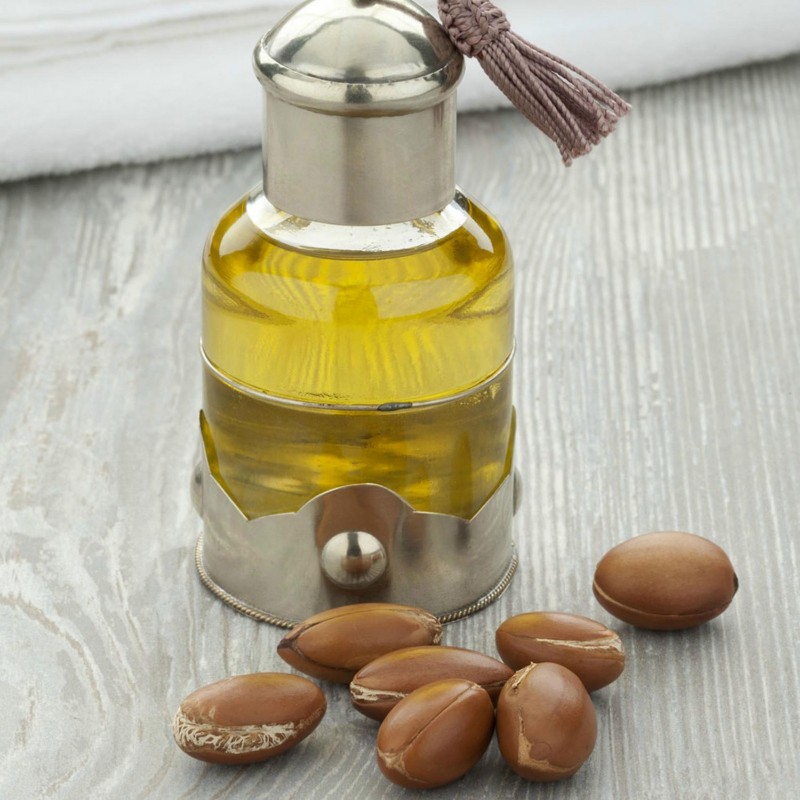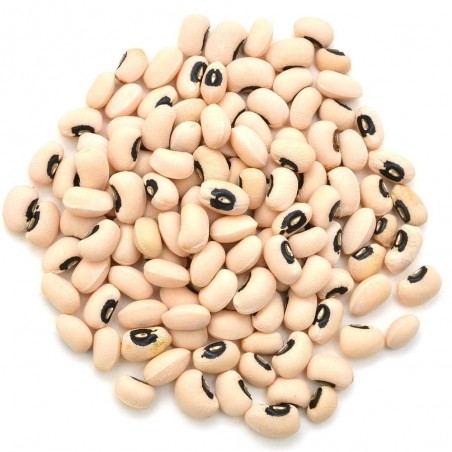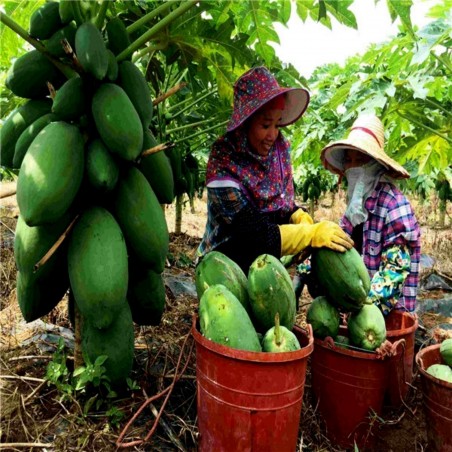
Argan seeds (Argania spinosa)
Argan seeds (Argania Spinosa)
Price for Package of 3 seeds.
Argania (Berber: ⴰⵔⴳⴰⵏ Argan) is a genus of flowering plants containing the sole species Argania Spinosa, known as argan, a tree endemic to the calcareous semidesert Sous valley of southwestern
Argan seeds (Argania Spinosa)
Price for Package of 3 seeds.
Argania (Berber: ⴰⵔⴳⴰⵏ Argan) is a genus of flowering plants containing the sole species Argania Spinosa, known as argan, a tree endemic to the calcareous semidesert Sous valley of southwestern Morocco. Argan trees grow to 8–10 m (26–33 ft) high and live up to approximately 200 years. They are thorny, with gnarled trunks and wide spreading crown. The crown has a circumference of about 70 m (230 ft) and the branches lean towards the ground.
The leaves are small, 2–4 cm (0.79–1.57 in) long, and oval with a rounded apex. The flowers are small, with five pale yellow-green petals; flowering is in April. The fruit is 2–4 cm (0.79–1.57 in) long and 1.5–3 cm (0.59–1.18 in) broad, with a thick, bitter peel surrounding a sweet-smelling but unpleasantly flavored layer of the pulpy pericarp. This surrounds the very hard nut, which contains one (occasionally two or three) small, oil-rich seeds. The fruit takes over a year to mature, ripening in June to July of the following year.
Name
The scientific name argania is derived from argan, the name of the tree in Tasussit, the Berber language which is spoken by the majority of the people living in the areas where the tree is endemic. Tasussit has a rich vocabulary for the various parts of the fruit, its stages of ripeness, and its harvesting and processing. The oil is also called argan. In medieval Arabic pharmacological sources, the tree is known as harjān, a name which is also derived from Tasussit argan.
Cultivation
Goats climbing an Argan tree
In Morocco, arganeraie forests now cover some 8,280 km2 (3,200 sq mi) and are designated as a UNESCO biosphere reserve. Their area has shrunk by about half during the last 100 years, due to charcoal-making, grazing, and increasingly intensive cultivation. The best hope for the conservation of the trees may lie in the recent development of a thriving export market for argan oil as a high-value product. However, the wealth brought by argan oil export has also created threats to argan trees in the form of increased goat population. Locals use the newfound wealth to buy more goats and the goats stunt the growth of the argan trees by climbing up and eating their leaves and fruit.
Argan is grown in Israel, in the Arabah, and Negev.
Uses
In some parts of Morocco, argan takes the place of the olive as a source of forage, oil, timber, and fuel in Berber society. Especially near Essaouira, the argan tree is frequently climbed by goats.
Fruit
Argan fruit falls in July, when black and dry. Until this happens, goats are kept out of the argan woodlands by wardens. Rights to collect the fruit are controlled by law and village traditions. The leftover nuts are gathered after consumption and spit out by ruminating goats. Seeds spat out by the goats constitute an overlooked mechanism of seed dispersal.
Argan oil
Argan oil is produced by several women's co-operatives in the southwestern parts of Morocco. The most labor-intensive part of oil-extraction is removal of the soft pulp (used to feed animals) and the cracking by hand, between two stones, of the hard nut. The seeds are then removed and gently roasted. This roasting accounts for part of the oil's distinctive, nutty flavor.
The traditional technique for oil extraction is to grind the roasted seeds to paste, with a little water, in a stone rotary quern. The paste is then squeezed by hand to extract the oil. The extracted paste is still oil-rich and is used as animal feed. Oil produced this way can be stored and used for 3–6 months, and will be produced as needed in a family, from a store of the kernels, which will keep for 20 years unopened. Dry-pressing is becoming increasingly important for oil produced for sale, as this method allows for faster extraction, and the oil produced can be used for 12–18 months after extraction.
The oil contains 80% unsaturated fatty acids, is rich in essential fatty acids, and is more resistant to oxidation than olive oil. Argan oil is used for dipping bread, on couscous, salads, and similar uses. A dip for bread known as amlou is made from rgan oil, almonds, and peanuts, sometimes sweetened by honey or sugar. The unroasted oil is traditionally used as a treatment for skin diseases, and has become favoured by European cosmetics manufacturers.
Foliage, flowers and immature fruit
Argania Spinosa
Argan oil is sold in Morocco as a luxury item. The product is of increasing interest to cosmetics companies in Europe. It used to be difficult to buy the oil outside Morocco, but since 2001–2002, it has become a fashionable product in Europe and North America. It is now widely available in specialist shops and occasionally in supermarkets. Its price (US$40–50 for 500 ml) is notable compared to other oils.
Argan oil contains:
- 44% Oleic acid
- 30% Alpha-linolenic acid
- 12% Palmitic acid
- 6% Stearidonic acid
- 5% Linoleic acid(Conflicts with the table in argan oil)
- 3% Myristic acid
Animal feed
Argan trees are a major source of forage for sheep, goats, camels, and cattle. Fruits and leaves are readily consumed by livestock. The press cake resulting from oil extraction can also be sun-dried and fed to ruminants. Bees can nest in argan trees, making them sites for wild honey harvesting.
| HEIRLOOM ? | Yes |
|---|---|
| Organic Seeds ? | Organic Seeds |
| Edible ? | Edible |
| Perennial ? | Perennial plant : Yes |
| Ručně vybraná semena? | Ručně vybraná semena |
| Medicinal Plant ? | Medicinal Plant: Yes |


Vaše hodnocení nelze odeslat
Nahlásit komentář
Zpráva odeslána
Váš podnět nelze odeslat
Napište svůj názor
Zkontrolovat před odesláním
Vaši recenzi nelze odeslat
🌍 Globální doručení z EU
Zásilky odesíláme do celého světa z Evropské unie prostřednictvím registrované pošty s potvrzením o doručení.
📦 Sledování zásilky
Pro sledování zásilky se přihlaste ke svému účtu a přejděte do sekce Historie objednávek > Detail, kde najdete sledovací číslo.
Mezinárodní sledování: 17Track
Pro čísla jako RGxxxxxxHR: Posta.hr sledování
🕒 Informace o sledování jsou dostupné až 24 hodin po odeslání zásilky.
⚠️ Důležité upozornění
Dobírka není možná.
Pravidelně kontrolujte složku spam / nevyžádaná pošta ve své e-mailové schránce.
Používejte pouze kontaktní formulář na našich stránkách.
E-maily zaslané přímo na naši adresu nemusí být přijaty.
📱 Povinné telefonní číslo
Při objednávce uveďte své mobilní číslo s předvolbou země.
Příklad: +420 123 456 789
🚚 Podmínky doručení
Registrované zásilky vyžadují podpis příjemce.
Neobjednávejte, pokud:
chcete doručení do poštovní schránky
nebudete doma k převzetí zásilky
chcete, aby balík byl doručen sousedovi (❌ není možné)
📬 Pokud zadáte adresu poštovní schránky a zásilka bude ztracena, nemáte nárok na vrácení peněz.
↩️ Vrácení zásilky a opětovné odeslání
Pokud je zásilka z jakéhokoliv důvodu vrácena zpět k nám:
Budete hradit náklady na zpětné zaslání 2 €
A také náklady na opětovné odeslání
⏱ Zpoždění a sledování
Pokud sledování ukazuje, že zásilka je stále u odesílatele, znamená to, že je na cestě.
Kontaktujte místní poštu s číslem sledování pro aktuální informace.
Nejsme poštovní službou a zásilku za vás nesledujeme.
Nezodpovídáme za dobu doručení.
🔍 Vyšetřování ztráty zásilky lze zahájit až 30 dní po odeslání.
✈️ Možnosti dopravy
| Typ dopravy | Doba zpracování | Pojištění | Možné zpoždění | Poznámka |
|---|---|---|---|---|
| Standardní | 7–10 pracovních dnů | ❌ | 7–14 pracovních dnů | Nejlevnější možnost |
| Prioritní | 1–7 pracovních dnů | ❌ | 3–10 pracovních dnů | Prioritní zpracování – ne nutně rychlejší doručení |
| Pojištěná | 1–7 pracovních dnů | ✅ | 3–10 pracovních dnů | Vrácení peněz při ztrátě (do 150 €) |
🕒 Odhadovaná doba doručení:
V rámci EU: 3–20 pracovních dnů
Celosvětově: 5–30 pracovních dnů
Příklady doby doručení do USA: 27, 22, 19, 17, 13 dnů
💳 Platební metody
💶 Bankovní převod (SEPA / IBAN / SWIFT-BIC)
Uveďte číslo objednávky v platebním příkazu (např. SGS-19811702).
Chybějící reference může způsobit zpoždění nebo zrušení objednávky.
Pokud platba nedorazí do 7 dnů, objednávka bude automaticky zrušena.
🅿️ PayPal
Přijímáme platby pouze v eurech.
Nastavte měnu na euro při platbě.
💳 Platba kartou
Platby kartou probíhají přes náš web: Exotic Seeds Store
Akceptujeme Visa, MasterCard, American Express, Diners Club, UnionPay, JCB, Discover a další.
💡 Zákazník hradí všechny transakční poplatky.
Pro rychlejší vyřízení objednávky pošlete potvrzení o platbě.
📅 Další informace
Objednávky nevyřizujeme a neodesíláme o víkendech (sobota a neděle).
Před objednáním si vždy přečtěte důležitá oznámení na našem webu (svátky, speciální podmínky atd.).
📫 Pozor:
Neposílejte nám zprávy přímo na e-mail. Používejte pouze kontaktní formulář na našem webu.
Related Products















